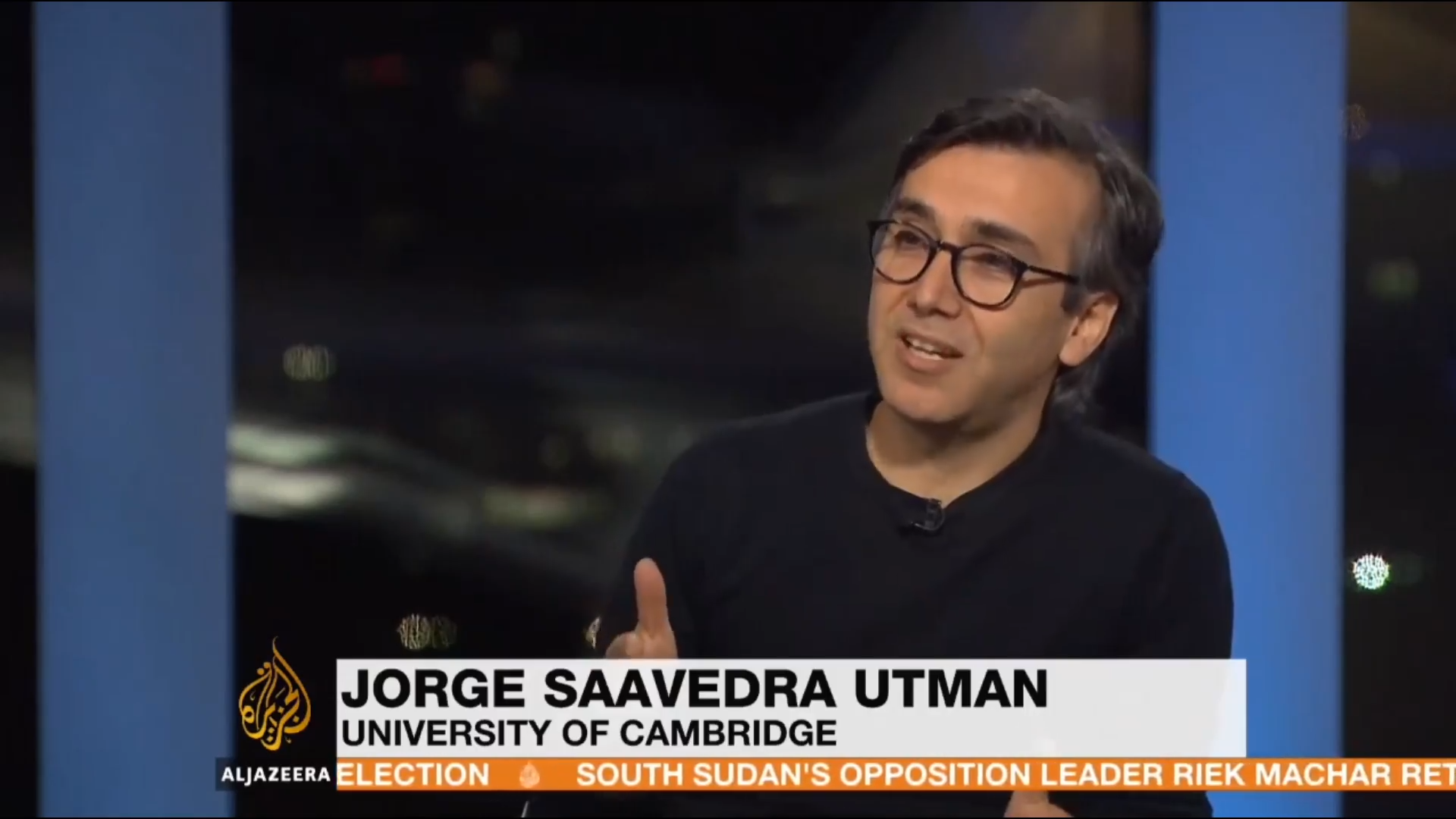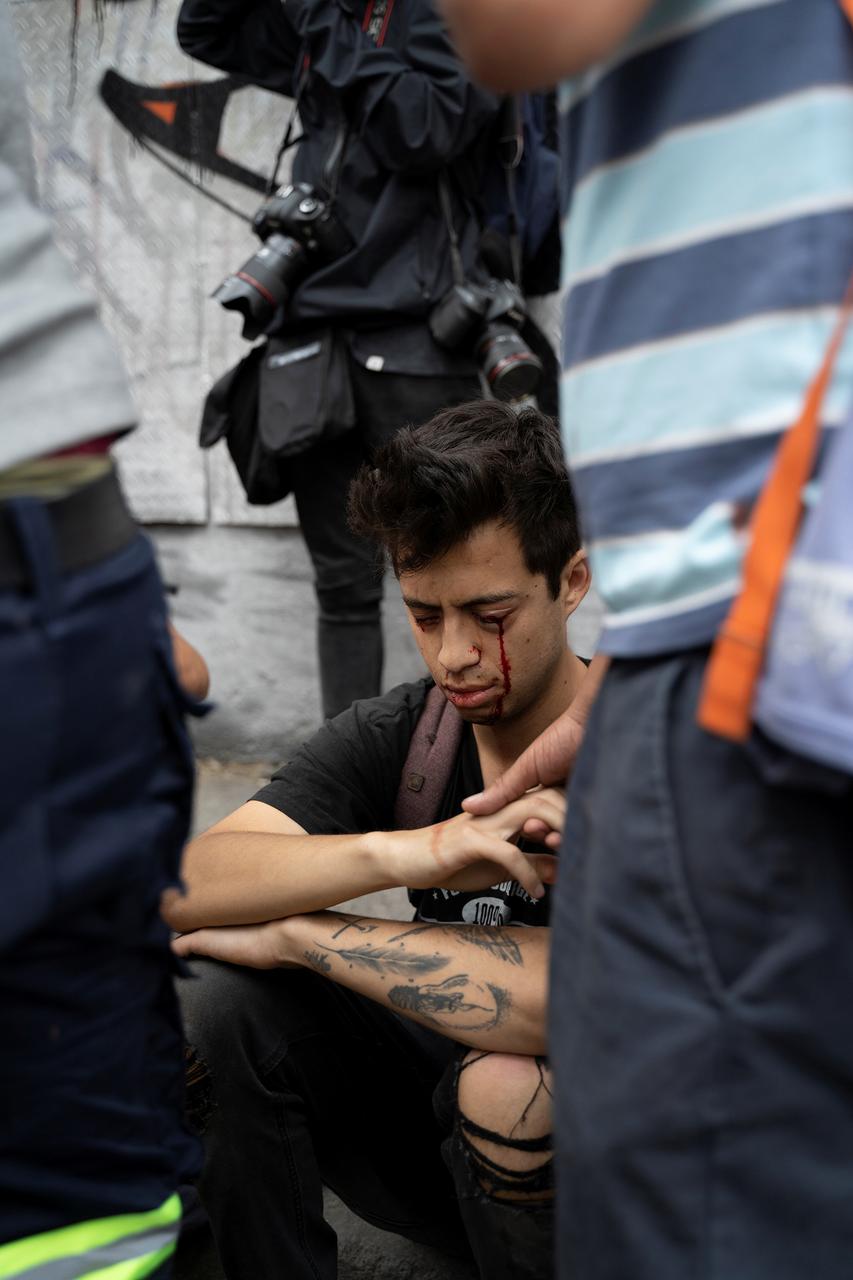
Affiliated Lecturer Dr Jorge Saavedra Utman reports on the civil unrest from his home country of Chile, which he presents as “a pivotal case in the existence of neoliberalism, the shortcomings of democracy and the brutality of police”.
Described as “the North Korea of Neoliberalism”, in Chile the richest 1% of the country own a third of the total wealth. It was student protests at the rise in subway fares that provided the flashpoint for the protests, and from the initial 200 who stormed the metro station in mid-October, over a million civilians took to the streets in protests two weeks later.
Messages from protestors challenge inequality across society, including the structure of Chile’s neoliberal economy and the “culture of militarism” that underlies widespread state-sanctioned violence against civilians.
A particular role in this uprising has been played by the media, an actor that is also part of Chile’s highly privatized landscape. Chile has the most concentrated media ownership in Latin America and the resentment over mainstream media has been expressed on the streets. Dr Saavedra Utman features in a mini-documentary by Al Jazeera’s Listening Post (below), where he discusses the preferred narratives of Chile’s media when covering expressions of social dissent, and the relevance of activist recorded-footage for the overall mobilization. “There’s a perception that the media aren’t telling the truth, that they’re connected to vested interests and private interests,” he said.
"If you scratch beyond the surface of Chile, there is evidence of enormous social, cultural, economic and political injustice,” Saavedra Utman told Deutsche Welle. He argues that citizens have turned to the protests as they are tired of being abused and belittled for the hardships they are facing. In particular, Saavedra Utman highlights the lack of empathy on the part of the government that has led people to take issues into their own hands.
"Ministry declarations that belittle people and their suffering, for example by telling them that long wait times in the public health system are a chance to socialize, show the disdain of a government that does not have the communication competencies to empathize with those who are having a hard time. Instead of having empathy, the government has responded with a 'hard hand' that denies people's suffering and their demands for justice."
This ‘hard-handed’ response has exacted a terrible human cost, as Chile’s National Institute of Human Rights reports 26 people have been killed in the protests so far. Estimates for the numbers injured range from 2,300-13,000 civilians. A 22 year old student, Gustavo Gatica, has become a rallying point for protesters after being left fully blind by rubber bullets fired by the police. Both Amnesty International and Human Rights Watch have denounced what they describe as “serious human rights violations” by police and security forces in Chile.
| Gustavo Gatica, 22, has been left fully blind after being struck by rubber bullets fired by police. |
Saavedra Utman is watching the unfolding situation with growing concern. "I think the government rapidly handed control to the military because it never had control of the situation," he told the BBC. “Ultimately, the practice of Latin American governments has been to dialogue with communities through police and repression. And that has not changed because trust and democratization processes have not been moved on.”
Dr Jorge Saavedra Utman (Research Profile)
Recent Publications:
The Media Commons and Social Movements. Grassroots Mediations Against Neoliberal Politics. Routledge
‘Occupying Space and Time. Enabling Communicative Ecologies for Democracy’. In Patricia Vilches (Ed.) Del Aire al Aire: Negotiating Space in Latin America. Brill





